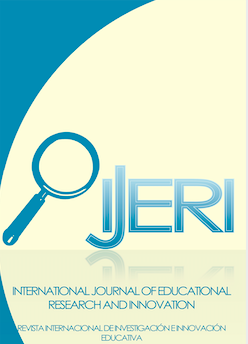code of ethics
The Practicum Journal has an ethical code based on the guidelines set by the Committee on Publication Ethics (COPE).https://publicationethics.org/core-practices
The code of ethics includes the professionalism of the authors, reviewers and editors.
All articles pass through strict authenticity controls, with reviews under our anti-plagiarism tool service provided by Crossref and promoted by iThenticate - Similarity Check -, Turnitin, in addition to other anti-plagiarism tools from the University of Malaga itself. ![]()
![]()
Commitment of the AUTHORS
Originality and plagiarism. Manuscripts submitted to this journal must be original works and therefore cannot contain fragments or results previously published. Likewise, the author confirms at the time of delivery, that the manuscript has been prepared by those who sign as authors, and that due citations and references have been made in the case of the fragments that are not their own.
References used. The manuscript submitted by the author must contain the bibliographic references used and cited throughout the text.
Authorship. The author confirms upon delivery of the manuscript, that all the authors who have collaborated appear in it, being hierarchically ordered according to the responsibility and involvement of each one of them.
Access and retention. If the editors consider it necessary, the authors must provide the sources or data on which the research is based, making them accessible so that they can be kept for a certain period of time after publication.
Conflict of interest and disclosure. The authors of the manuscript must explicitly state that there is no conflict of interest that may have influenced the results or interpretations. In addition, they must indicate, if applicable, the agency and/or project from which the research article arises.
Possible errors in published articles. If an error or inaccuracy is identified, the author should immediately inform the journal's editors, providing them with the necessary information for timely correction.
Responsibility. The authors accept responsibility for what is written in the manuscript, thus confirming that they have reviewed the most current and relevant scientific literature referring to the subject matter, and taking into account in a pluralistic way the different currents of knowledge.
Digital preservation policy. The authors will assign to the Practicum Journal the rights of dissemination, public communication on the Internet and computer networks, data buses, as any other portal or electronic device for online consultation of its contents and extracts, and under the conditions of the portal, repositories or database where the work is located. The Practicum Journal grants authors the publication and dissemination of their articles and works on their personal websites, research teams, institutional repositories and scientific databases. Likewise, the names and e-mail addresses entered in this journal will be used exclusively for the purposes set forth therein and will not be provided to third parties or used for other purposes. See our page on Privacy Statement.
Reviewers' Commitment
Contribution to the editorial decision. Peer review is of great help both to the editors by facilitating decision making regarding proposed articles, and to the authors by allowing them to improve their contribution. The reviewers are committed to a critical, honest, constructive and unbiased review of both the scientific and literary quality of the writing.
Respect for time. In the event that the reviewer does not feel competent in the subject matter to carry out the review, or considers that he or she will not have time to respond within the deadline set, the team of editors must be notified immediately. In the case of accepting the review, they undertake to evaluate the works in the shortest possible time within the established deadline, thus favouring a rapid response to the authors.
Confidentiality. The manuscripts assigned to the reviewers are confidential, so they must not make their content known to others without the express consent of the editors.
Objectivity. Peer review is conducted in an objective manner, so any personal judgments about the authors are ruled out. Likewise, reviewers are obliged to provide sufficient reasons for their assessments. Therefore, they must submit a complete report following the established protocols, with greater accuracy if possible, in the case of rejections. In turn, they must notify the team of editors if they detect substantial parts of the work already published or under review for another publication.
Text display. Reviewers should indicate those bibliographic references of fundamental works that may have been forgotten by the authors.
Conflict of interest and disclosure. Reviewers may only review a manuscript if there is no conflict of interest. Therefore, the information obtained in the peer review process must be confidential and cannot be used for personal purposes.
Commitment of the EDITORS
Publication decision. The editors are committed to ensuring that the selection of reviewers has been based on the selection of the most qualified and scientifically sound specialists, thus allowing the review to be critical and expert. The Practicum Journal selects between 2 and 3 reviewers for each paper to ensure the greatest objectivity in the review process.
Honesty. The editors evaluate based on the scientific merit of the contents, without discrimination of race, gender, sexual orientation, religion, ethnic origin, nationality or political opinion of the authors.
Confidentiality. The editors and working group members agree not to disclose the content of articles submitted for publication to persons other than authors, reviewers, and editors. The editors and Editorial Committee are committed to the confidentiality of the manuscripts, their authors and reviewers, ensuring anonymity and thus preserving intellectual integrity throughout the process.
Conflict of interest and disclosure. The editors agree not to use in their research the contents of articles submitted for publication without the express consent of the author.
Respect for the times. The editors assume the responsibility of complying with the deadlines established for the reviewers and the publication of the accepted papers, in order to ensure the rapid dissemination of their results. They are committed to respond in the published time, as well as not to have works in waiting lists.




8.png)








